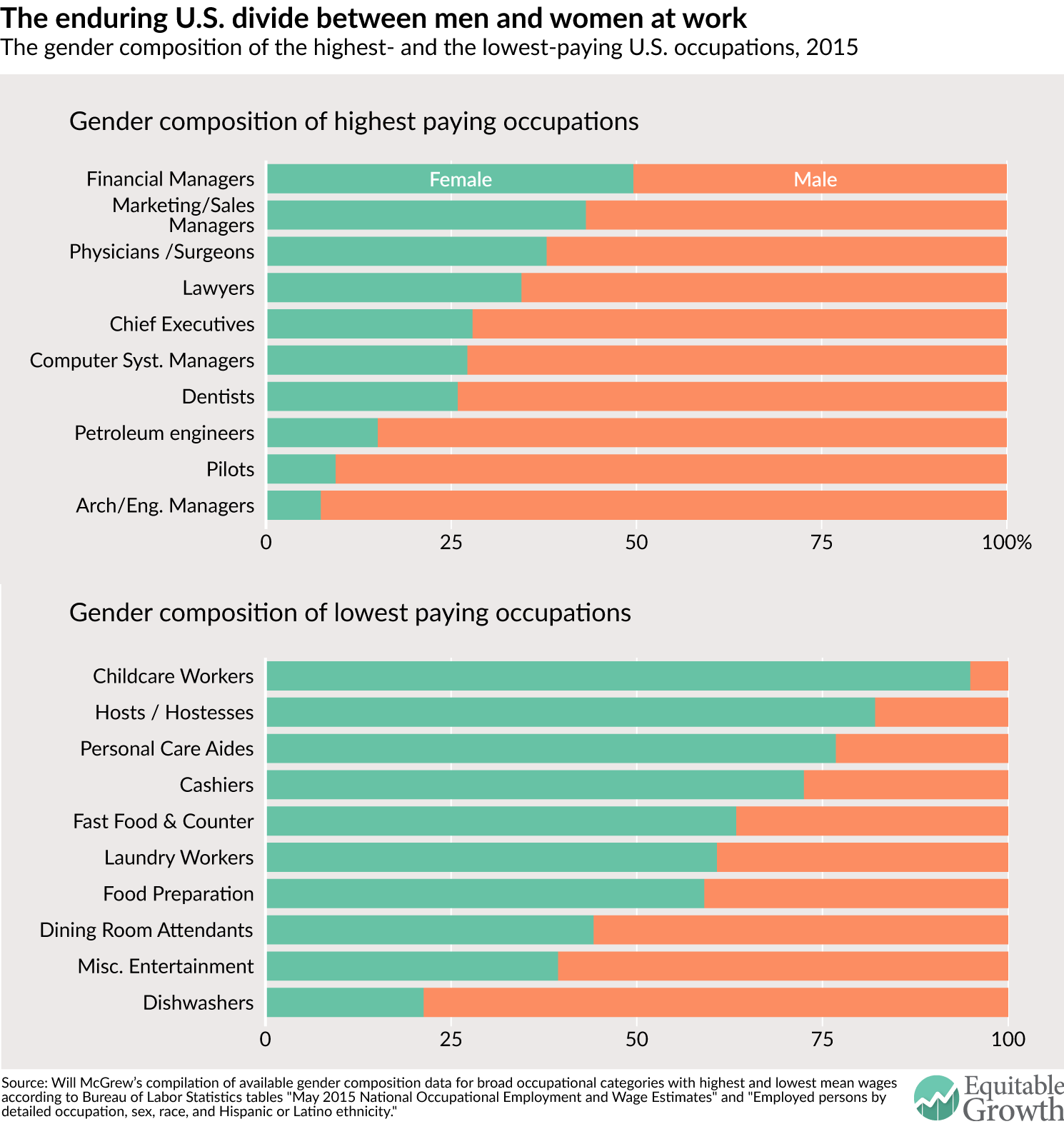This is a weekly post we publish on Fridays with links to articles that touch on economic inequality and growth. The first section is a round-up of what Equitable Growth published this week and the second is the work we’re highlighting from elsewhere. We won’t be the first to share these articles, but we hope by taking a look back at the whole week, we can put them in context.
Equitable Growth round-up
It seems like a lot of twenty-somethings in the United States who are trying to make it in the big city have a secret weapon: Mom and Dad. But parents who help their adult children pay rent are more likely to be white, which could ultimately deepen the racial wealth gap.
Nancy Folbre, an economics professor at the University of Massachusetts Amherst, takes a look at why jobs in care industries such as health, education, and social services typically pay less than other industries, even when controlling for differences in human capital and other job characteristics.
A new framework for understanding why interest rates have declined so much may help us understand where interest rates will head and how policy might boost the natural rate of interest, writes Nick Bunker.
While economic indicators show that the U.S. economy is growing, Heather Boushey writes about why many Americans feel like the economy is on the wrong track—and why that makes sense.
Elisabeth Jacobs writes about a new paper by Claudia Goldin and Josh Mitchell that finds that a growing number of women in their 30s through mid-40s—peak childbearing age—are dropping out of the labor force.
A new paper investigates whether changes in market demand faced by employers creates volatility in workers’ earnings. Nisha Chikale unpacks the findings.
Links from around the web
Noah Smith writes about how economists are tracing a host of ills—a decreased share of national income for workers, worsening inequality, and decreased business dynamism—to increased market concentration and a lack of competition. [bloomberg view]
Diversity and inclusion are keys to a growing economy, Melissa De Witte writes, at least according to a new report written in collaboration with the University of Southern California and the Association of Chamber of Commerce Executives. [uc santa cruz]
Alison Griswald writes about a new program that allows Boston-area Uber drivers to rent cars through Zipcar but requires they pay a rental fee, resulting in maximum hourly earnings well below the Massachusetts minimum wage. Like many “gig economy” workers, minimum wage protections don’t apply to Uber drivers because they are classified as independent contractors, not traditional employees. [quartz]
Here’s one for all the Sriracha lovers out there: Dany Bahar writes about how immigration can generate jobs and economic growth by looking at the example of Huy Fong, the famous California-based spicy sauce company founded by a Vietnamese refugee. [brookings]
Healthcare isn’t just about individual health. Alvin Chang looks at research showing how repealing Obamacare could worsen inequality and fracture neighborhood cohesion. [vox]
Friday Figure

Figure from “Gender segregation at work: ‘separate but equal’ or ‘inefficient and unfair’” by Will McGrew.


